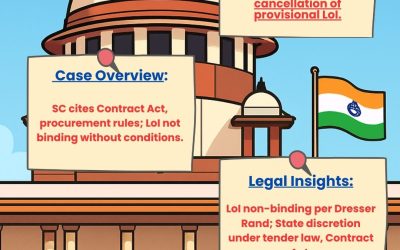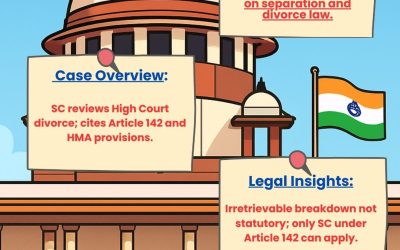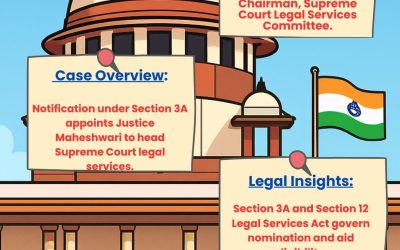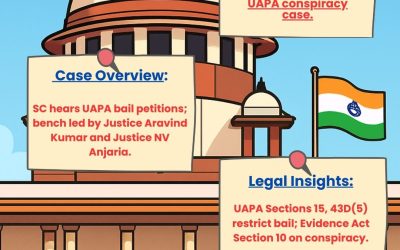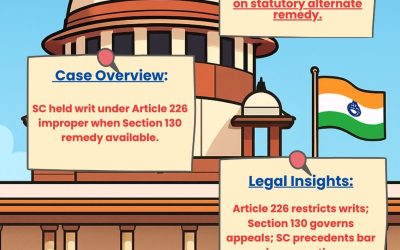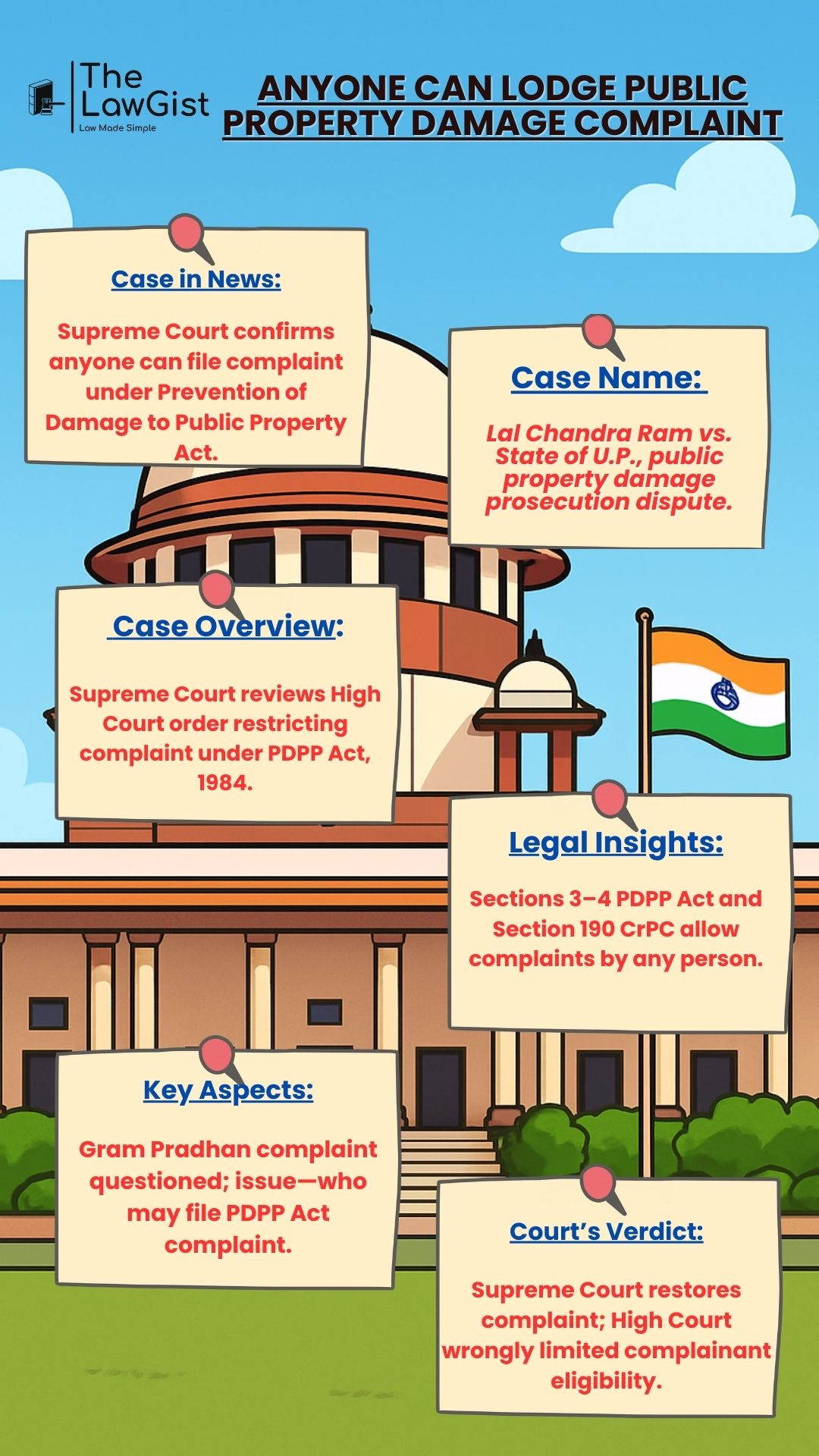
Supreme Court ruling clarifying that any person can initiate criminal action for damage to public property under the Prevention of Damage to Public Property Act, 1984.
Case in NewsAnyone Can Lodge Public Property Damage Complaint ruling clarifies that any individual may initiate proceedings . |
Discover powerful Latin Maxims and simplify complex legal terms in seconds.
Case Overview
Case Name: Lal Chandra Ram vs State of U.P. & Ors.
A significant ruling by the Supreme Court examined whether filing a complaint under the Prevention of Damage to Public Property Act, 1984 requires a specific authority . The bench of Justice Pankaj Mithal and Justice Prasanna B. Varale addressed a challenge against the Allahabad High Court’s decision, which held that only the Bhumi Prabandhak Samiti could initiate action for public property damage . The Court assessed the legal distinction between civil provisions under the U.P. Revenue Code and criminal prosecution under the 1984 Act .
Step into the world of justice with Courtroom Chronicle
Key Aspects
Before analysing the legal principles, it is essential to understand the factual background and the precise issues raised . The case primarily revolved around the authority to initiate criminal proceedings under the 1984 Act and whether such power is restricted to specific statutory bodies . These points helped the Court clarify procedural rights under criminal law .
- Gram Pradhan filed a complaint alleging damage to public property .
- Magistrate took cognizance under IPC provisions read with the Prevention of Damage to Public Property Act, 1984 .
- High Court quashed the proceedings, holding the Gram Pradhan was not a competent authority .
- Core issue : Whether the 1984 Act restricts the class of persons who may lodge a complaint .
Legal Insights
Understanding the legal provisions is crucial to appreciating the Court’s reasoning . The bench relied on established criminal law principles and statutory interpretation to conclude the Act’s scope . These provisions guided the ruling :
- Section 3 & Section 4 of the Prevention of Damage to Public Property Act, 1984 : Create offences relating to damaging public property but contain no clause restricting who may file a complaint .
- Section 190(1)(a) CrPC : Empowers a Magistrate to take cognizance of any offence upon receiving a complaint from any person .
- Court reiterated the fundamental principle that criminal law may be set in motion by anyone unless expressly restricted by statute .
- U.P. Revenue Code provisions (civil in nature) relate to damage assessment/ejectment and do not control criminal prosecution under the 1984 Act .
Court’s Verdict
The Supreme Court held that the High Court erred in treating the Gram Pradhan as incompetent to lodge a complaint . It ruled that the 1984 Act imposes no limitation on who may initiate criminal action. Consequently, the magistrate’s cognizance and summons were valid . The High Court’s order was set aside, and the appeal was allowed .
Source – Supreme Court of India
Read also – CrPC
The LawGist ensures exam success with quality notes—TPL, Current Affairs, Recent Judgments, and more. Backed by trusted resources and videos, The LawGist is every aspirant’s first choice.


